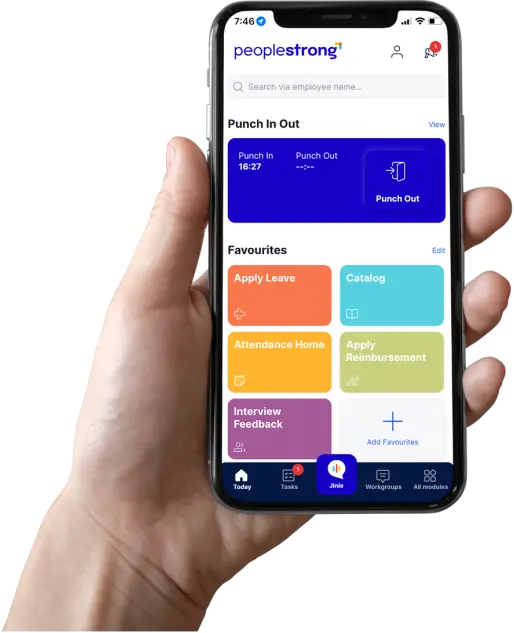Maintaining professionalism in the workplace is essential for a positive and productive environment. Employees are expected to interact respectfully with their managers and colleagues. However, there are situations where unprofessional behavior disrupts the workplace, affecting team morale and overall efficiency.
In such cases, a warning letter to an employee for unprofessional behavior with a manager becomes a necessary step. This letter serves as a formal notice, clearly outlining the misconduct and setting expectations for improvement. It also helps document the issue in case further action is required.
In this blog, we will cover everything you need to know about issuing a warning letter for workplace misconduct. From recognizing when it’s necessary to understand its key components and structuring it correctly, we’ll walk through the entire process—including a sample letter for reference
When Should You Issue a Warning Letter for Misbehavior?
Every workplace operates on mutual respect and professionalism. When an employee disregards these expectations, especially towards a manager, it creates a disruptive work environment. Before issuing a warning letter to an employee for misbehavior, assessing the situation and determining if formal action is necessary is important.
Defining Unprofessional Behavior in the Workplace
Unprofessional behavior can range from minor infractions to serious violations. It includes actions that show a lack of respect, responsibility, or adherence to workplace ethics. In the case of manager-employee interactions, this could mean ignoring instructions, using disrespectful language, or showing outright defiance.
Common Examples of Misconduct Towards Managers
Here are some instances where a warning letter might be required:
- Disrespectful communication: Raising one’s voice, using rude language, or speaking in a dismissive manner.
- Insubordination: Refusing to follow reasonable instructions or challenging a manager’s authority in an unprofessional way.
- Offensive language or gestures: Making inappropriate remarks, using abusive words, or displaying rude body language.
- Disruptive behavior: Engaging in arguments, spreading negativity, or undermining a manager’s decisions.
Company Policies on Workplace Professionalism and Respect
Most organizations have clear guidelines on professional conduct outlined in their employee handbook or code of conduct. Employees are expected to adhere to these policies, and violations can lead to disciplinary action. A warning letter to an employee for unprofessional behavior with a manager should reference these policies to reinforce company expectations.
The Role of Verbal Warnings Before Issuing a Formal Letter
A written warning should not always be the first step. In many cases, a verbal warning or discussion can help address the issue without escalating the matter. However, if the behavior continues or is severe, a written warning becomes necessary to document the misconduct formally.
Key Components of a Warning Letter for Unprofessional Behavior
A well-structured warning letter to an employee for unprofessional behavior with a manager should be clear, professional, and aligned with company policies. It serves as an official record of misconduct while outlining the necessary corrective actions. Below are the essential components to include:
1. Date and Recipient Details
Every warning letter should begin with the date of issuance and the recipient’s details, including their full name, job title, and department. This ensures clarity and proper documentation.
2. Clear Description of the Incident
The letter should provide a factual and objective account of the unprofessional behavior. It should specify:
- The date and time of the incident
- The location where it took place
- A brief but precise description of what occurred
Avoid vague language or personal opinions. The goal is to document the facts in a way that is easy to understand.
3. Reference to Company Policies on Professional Conduct
Citing company policies strengthens the letter by providing a clear basis for why the behavior is unacceptable. Reference specific sections from the employee handbook, code of conduct, or company guidelines on workplace behavior.
4. Expected Corrective Actions and Behavioral Improvement
The letter should outline what is expected from the employee moving forward. This can include:
- A requirement to maintain respectful communication
- Following workplace protocols
- Attending a meeting with HR to discuss improvements
Clearly state that continued violations may result in further disciplinary action.
5. Consequences for Repeated Offenses
If the employee does not correct their behavior, there should be clear consequences. This could range from suspension to termination, depending on company policy and the severity of the issue.
6. Signature and Acknowledgment Section
The letter should include a space for the employee’s signature, confirming they have read and understood the warning. If they refuse to sign, HR should note the refusal in their records and have a witness present when delivering the letter.
How to Write a Warning Letter to an Employee for Unprofessional Behavior with Manager
Drafting a warning letter to an employee for unprofessional behavior with a manager requires a structured approach. The goal is to communicate the issue clearly while maintaining professionalism and fairness.
Here’s how to write an effective warning letter:
1. Structure the Letter Professionally
A formal warning letter should follow a clear structure:
- Subject Line: Briefly state the purpose (e.g., Warning Letter for Unprofessional Behavior).
- Introduction: Mention why the letter is being issued.
- Incident Details: Clearly describe the incident, including date, time, and location.
- Company Policies: Reference the workplace rules that were violated.
- Expected Behavior Change: Explain the corrective actions the employee needs to take.
- Consequences: Outline the next steps if the behavior continues.
- Signature Section: Include a place for the employee to acknowledge receipt.
2. Ensure Clarity and Fairness in the Message
Use straightforward language to explain the misconduct and expected improvements. Avoid emotional or accusatory tones—stick to facts. Instead of writing “You were rude to your manager in front of the team,” say “On 2025, during a team meeting, you raised your voice and used disrespectful language when speaking to [manager’s name].”
3. Address the Issue Without Personal Bias
The letter should focus on workplace behavior rather than personal judgments. Keep the tone neutral and professional. Instead of saying “You have a bad attitude,” state “Your communication in the meeting did not align with company standards for professionalism.”
4. Common Mistakes to Avoid When Drafting the Warning Letter
- Being too vague: Clearly state what happened rather than using general phrases like “unacceptable behavior.”
- Using harsh or emotional language: The letter should remain professional, not personal.
- Failing to mention company policies: Always reference specific rules or guidelines.
- Not including consequences: The employee should understand the seriousness of the issue and what could happen if it continues.
A well-written warning letter sets clear expectations while giving the employee a fair chance to correct their behavior.
Sample Warning Letters to Employees for Misbehavior
Below are seven warning letter samples addressing various unprofessional behavior toward a manager. Each template maintains a professional tone while clearly outlining expectations for corrective action.
Sample 1: General Warning for Unprofessional Behavior
| Subject: Formal Warning for Unprofessional Conduct [Employee Name] [Employee’s Designation] [Department] [Company Name] [Date] Dear [Employee Name], This letter serves as a formal warning regarding your unprofessional behavior towards [Manager’s Name] on [Date] in [Location/Meeting]. It has been observed that your communication during this interaction was disrespectful and did not align with the company’s workplace conduct policies. As per [Company Policy/Employee Code of Conduct], all employees are expected to maintain professionalism in interactions with colleagues and management. Your behavior violated these expectations and created an unproductive work environment. You are expected to: • Maintain respectful communication with all team members and managers. • Adhere to the company’s professional conduct guidelines. • Ensure that such incidents do not occur again. Failure to improve your behavior may result in further disciplinary action, up to and including termination. Kindly acknowledge receipt of this letter by signing below. Sincerely, [Your Name] [Your Designation] [Company Name] Acknowledgment: I, [Employee Name], acknowledge receipt of this warning letter and understand the contents. Signature: ___________ Date: __________ |
Sample 2: Warning for Insubordination
| Subject: Warning Letter for Failure to Follow Instructions Dear [Employee Name], This letter is to formally address your refusal to follow direct instructions from your manager, [Manager’s Name], on [Date]. During [Meeting/Task/Project], you displayed insubordination by [Describe Incident, e.g., refusing to complete assigned tasks, speaking in a disrespectful tone, walking out of a meeting]. This behavior is unacceptable as per [Company Policy/Code of Conduct]. Managers provide guidance to ensure smooth operations, and failing to follow instructions disrupts productivity. Immediate corrective actions: • Follow all assigned duties and instructions from your manager. • Communicate any concerns professionally rather than refusing directives. • Avoid any future incidents of insubordination. Further violations will lead to additional disciplinary actions, including possible termination. Sincerely, [Your Name] [Your Designation] [Company Name] |
Sample 3: Warning for Using Offensive Language
| Subject: Formal Warning for Use of Inappropriate Language Dear [Employee Name], It has been brought to our attention that on [Date], you used inappropriate and offensive language while addressing [Manager’s Name] in [Meeting/Work Area]. Such behavior is not tolerated in the workplace and goes against our company’s professionalism policy. We expect all employees to maintain respectful communication. This letter serves as a formal warning, and any recurrence will result in stricter disciplinary action. Please ensure that: • All workplace communication remains professional and respectful. • You avoid using offensive or inappropriate language at work. • You engage in discussions constructively if you have concerns. Failure to comply with company standards may result in suspension or termination. Sincerely, [Your Name] [Your Designation] [Company Name] |
Sample 4: Warning for Disruptive Behavior
| Subject: Written Warning for Disruptive Workplace Conduct Dear [Employee Name], On [Date], you engaged in disruptive behavior by [Describe Incident: e.g., arguing with a manager in front of colleagues, interrupting meetings, making derogatory comments]. This conduct has negatively affected workplace morale and productivity. Professionalism is a core expectation at [Company Name], and your actions did not reflect this standard. Moving forward, we expect you to: • Maintain a respectful and professional attitude toward managers and colleagues. • Address disagreements in a private and appropriate setting. • Avoid any actions that may cause workplace disruption. Any further incidents of unprofessional conduct will result in additional disciplinary measures. Sincerely, [Your Name] [Your Designation] [Company Name] |
Sample 5: Final Warning Before Disciplinary Action
| Subject: Final Warning for Unprofessional Conduct Dear [Employee Name], This is your final warning regarding continued unprofessional behavior towards [Manager’s Name]. Despite previous discussions and warnings, there have been repeated instances of [Describe Issue: e.g., disrespect, insubordination, offensive language]. Your behavior violates [Company Policy] and negatively impacts the workplace environment. If any further violations occur, we will be left with no choice but to proceed with disciplinary action, which may include suspension or termination. We urge you to take this warning seriously and correct your behavior immediately. If you need clarification or assistance, you may discuss this matter with HR. Sincerely, [Your Name] [Your Designation] [Company Name] |
Sample 6: Warning for Disrespectful Attitude Towards Manager
| Subject: Formal Warning for Disrespectful Behavior Dear [Employee Name], This letter serves as a formal warning regarding your disrespectful behavior towards [Manager’s Name] on [Date]. During [Meeting/Work Discussion], your tone and remarks were inappropriate and unprofessional. Such behavior does not align with our company’s values of respect and workplace decorum. At [Company Name], we expect all employees to communicate with professionalism and mutual respect. Moving forward, we require you to: • Maintain a professional and respectful tone in all workplace interactions. • Follow proper channels to address concerns instead of engaging in confrontational behavior. • Adhere to workplace conduct policies at all times. Failure to improve your behavior will result in further disciplinary action. We trust that you will take this matter seriously.Sincerely, [Your Name] [Your Designation] [Company Name] |
Sample 7: Warning for Aggressive Behavior Towards Manager
| Subject: Official Warning for Workplace Misconduct Dear [Employee Name], On [Date], there was an incident in which you displayed aggressive behavior toward [Manager’s Name] in [Location]. Your [specific action, e.g., raised voice, hostile body language, refusal to de-escalate the situation] created an uncomfortable and tense work environment. Aggressive behavior is not acceptable under [Company Policy Section], and we take such incidents seriously. You are expected to: • Conduct yourself professionally in all workplace interactions. • Manage disagreements through constructive discussions rather than aggression. • Refrain from creating a hostile or intimidating work atmosphere. This letter serves as a formal warning. Any further aggression will result in severe disciplinary action, including possible termination. Sincerely, [Your Name] [Your Designation] [Company Name] |
Conclusion
A warning letter to an employee for unprofessional behavior with a manager helps maintain workplace professionalism by addressing misconduct clearly and formally. It sets expectations for improvement while reinforcing company policies.
The goal is not just discipline but encouraging corrective action. Fair and consistent handling of such cases fosters a respectful and productive work environment.












